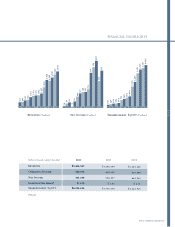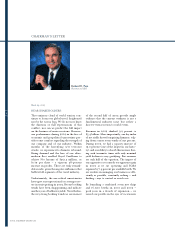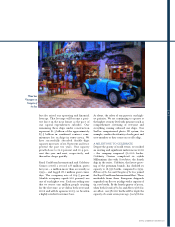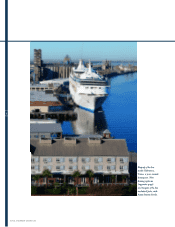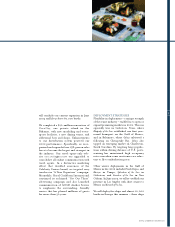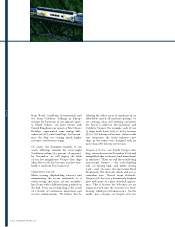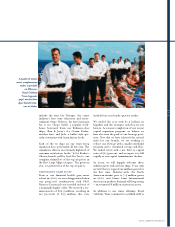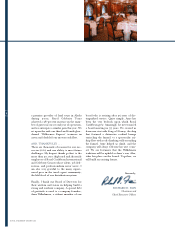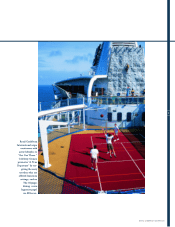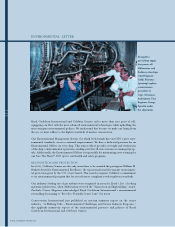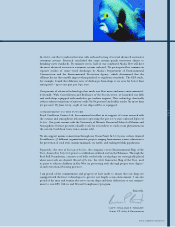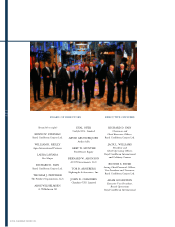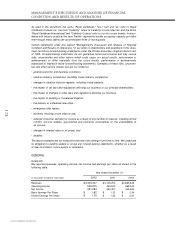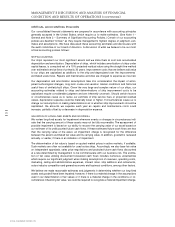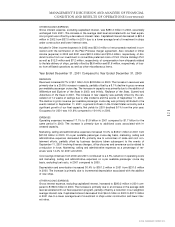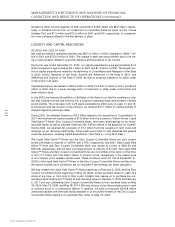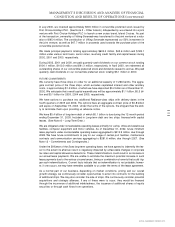Royal Caribbean Cruise Lines 2002 Annual Report Download - page 13
Download and view the complete annual report
Please find page 13 of the 2002 Royal Caribbean Cruise Lines annual report below. You can navigate through the pages in the report by either clicking on the pages listed below, or by using the keyword search tool below to find specific information within the annual report.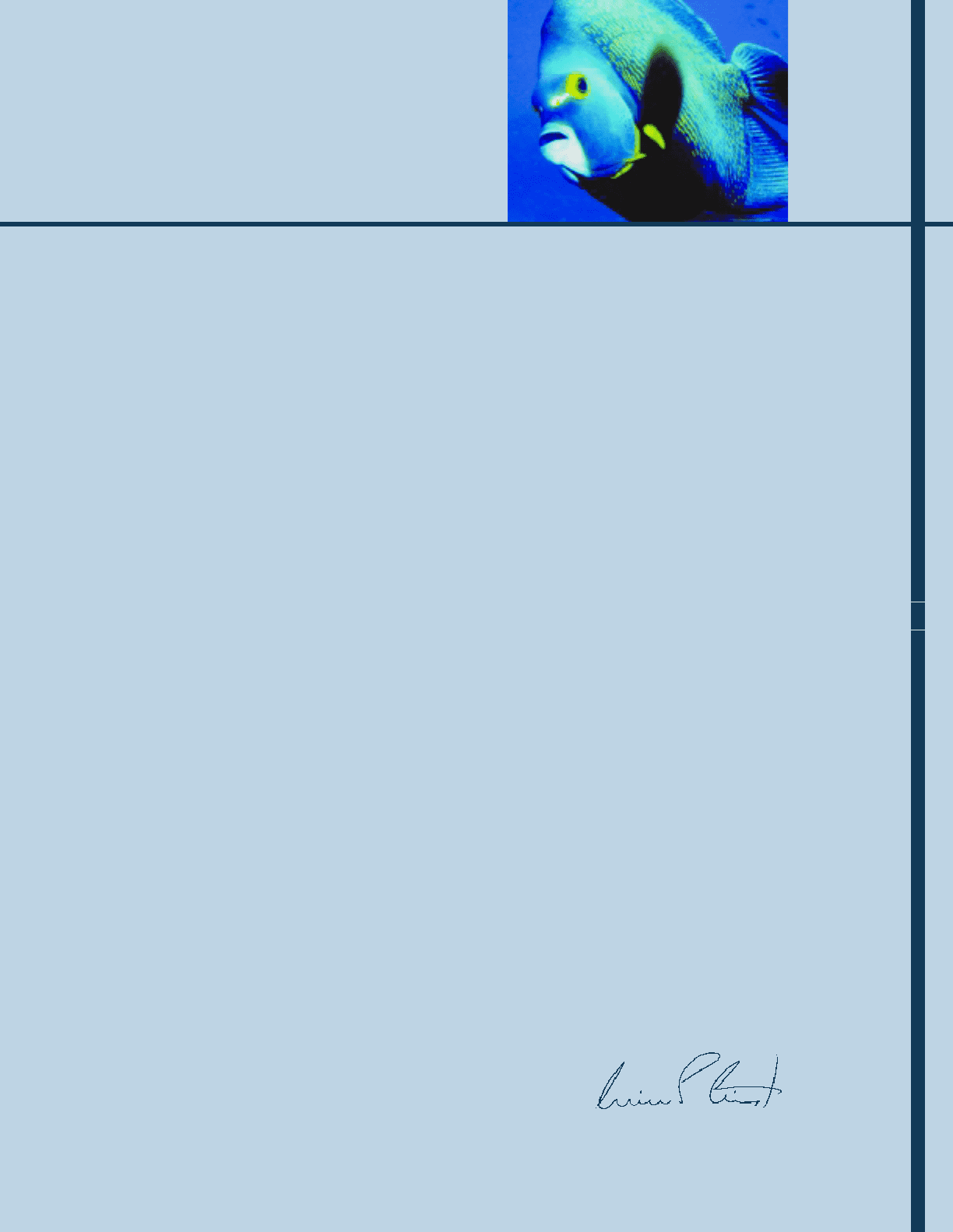
11
ROYAL CARIBBEAN CRUISES LTD.
In 2002, our fleet conducted reviews with onboard testing of several advanced wastewater
treatment systems. Research concluded that some systems purify wastewater almost to
drinking-water standards. By summer 2003, half of our combined Alaska fleet will have
the most advanced wastewater treatment systems onboard. We participated last summer in
separate studies of cruise-vessel discharges by Alaska’s Department of Environmental
Conservation and the Environmental Protection Agency, which determined that the
effluent has no discernable impact when purified to regulatory standards. The EPA study,
for example, found that dilution rates of discharges from ships at sea were far better than
anticipated – up to one part per 640,000.
Our pursuit of advanced technologies has made our fleet more and more environmental-
ly friendly. With
Constellation
and
Brilliance of the Seas
in 2002, we launched our fifth
and sixth ships equipped with smokeless gas-turbine engines. This technology drastically
reduces exhaust emissions of nitrous oxide (by 85 percent) and sulfur oxides (by more than
90 percent). By June 2004, eight of our ships will be so equipped.
COMMITMENT TO THE FUTURE
Royal Caribbean Cruises Ltd. has remained steadfast in its support of ocean research with
the oceanic and atmospheric laboratories operating the past 2 1/2 years onboard Explorer of
the Seas. Our joint venture with the University of Miami’s Rosenstiel School of Marine and
Atmospheric Science provides valuable tools for researchers to study ocean phenomena in
the eastern Caribbean (
www.rsmas.miami.edu
).
We also support marine conservation through our Ocean Fund. In 6 1/2 years, we have donated
$6 million to 37 different organizations for projects ranging from marine science education to
the protection of coral reefs, marine mammals, sea turtles, and endangered fish populations.
Separately, the crew of Sovereign of the Seas, the company’s 2001 Environmental Ship of the
Year, donated its $25,000 prize to establish an artificial reef in the Bahamas. Through the
Reef Ball Foundation, concrete reef balls seeded with coral polyps are strategically placed
where new reefs are desired. Monarch of the Seas, the 2001 Innovative Ship of the Year, used
its prize to educate children in Key West on protecting reefs through proper waste dispos-
al and recreational boating practices.
I am proud of the commitments and progress we have made to ensure that our ships are
equipped with the latest technologies to protect our fragile ocean environment. I am also
proud of the men and women who serve on our ships and their dedication to our commit-
ment to our ABC (Above and Beyond Compliance) program.
Sincerely,
CAPT. WILLIAM S. WRIGHT
Senior VP, Safety & Environment


